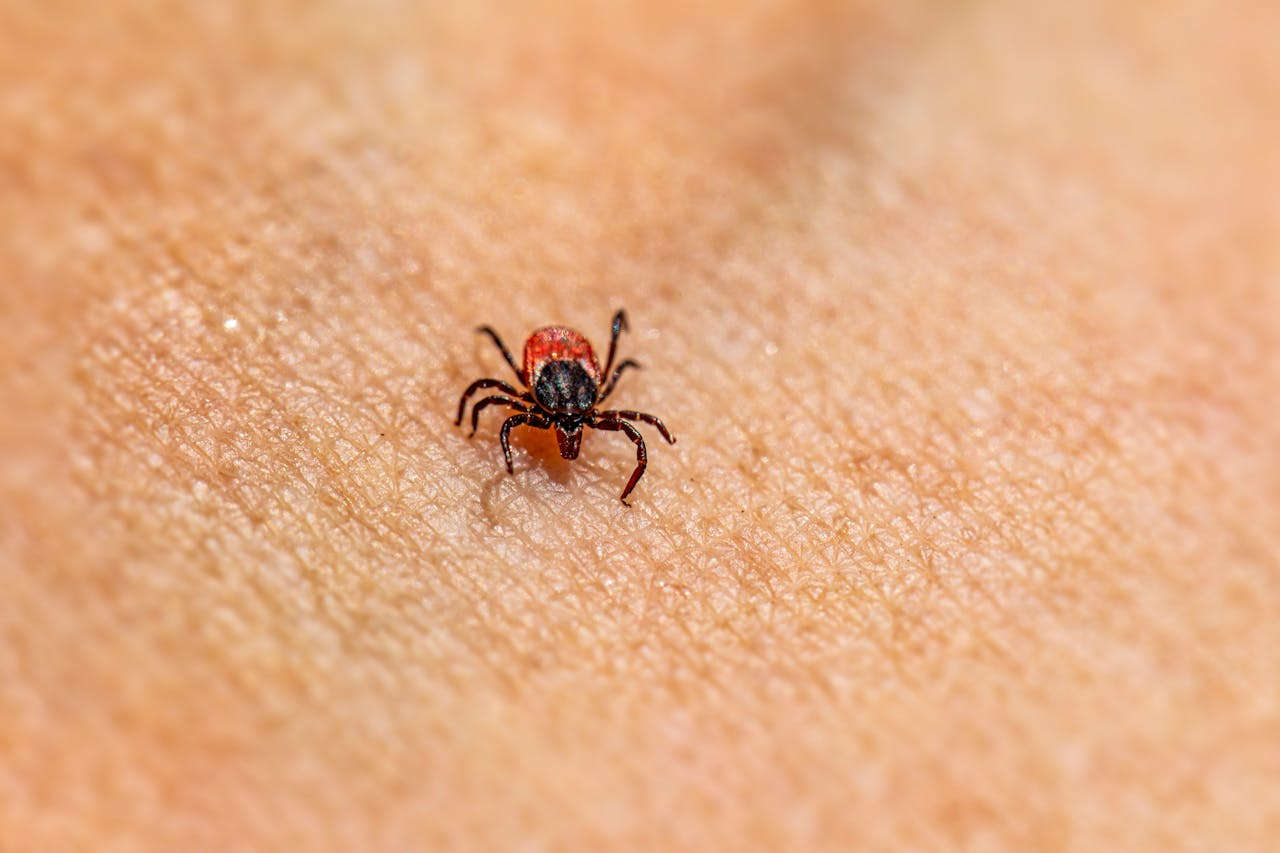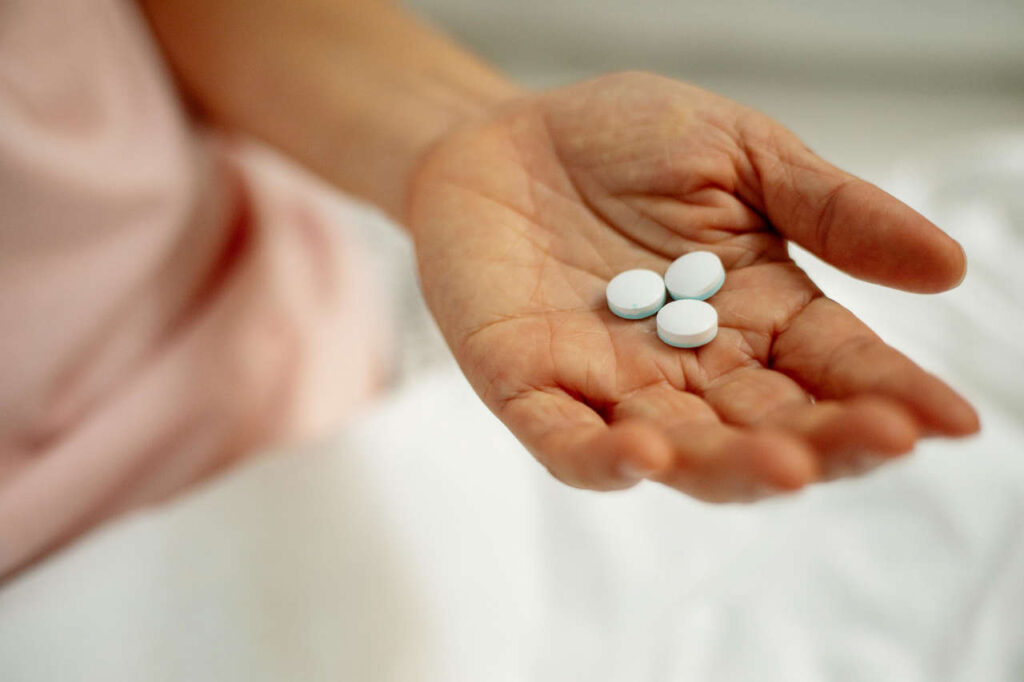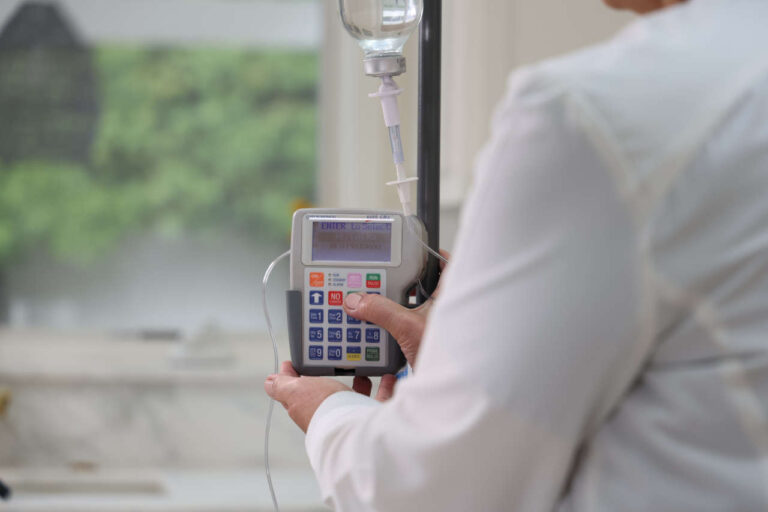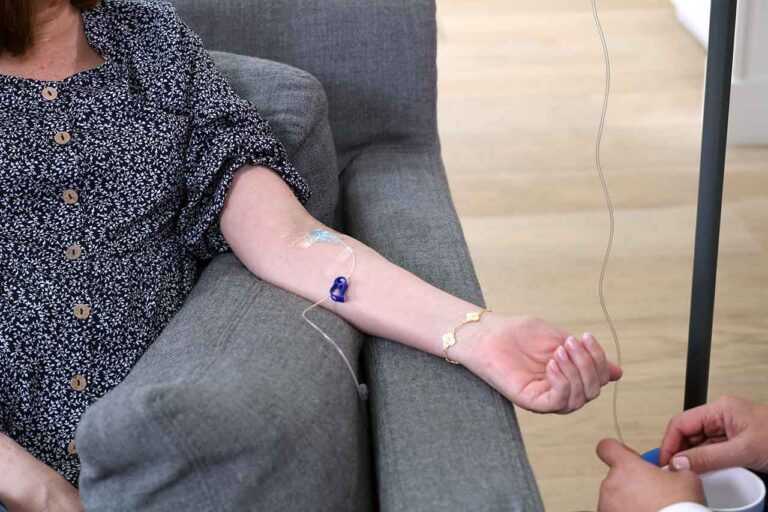
Lyme disease is one of the most common tick-borne illnesses in the world. According to statistics from the Centers for Disease Control and Prevention (CDC), it affects over 30,000 people annually in the US alone.
Treatment Info | Get IVIG Prior Authorization
However, treatments for this disease are limited. Antibiotics are the first option most doctors consider. But with increasing antibiotic resistance, they may not be effective in the future. Another possible treatment for Lyme disease may be IVIG.
IVIG has the potential to improve immune function and fight Lyme disease. However, its efficacy is still a topic of debate.
Today, we will examine the research surrounding IVIG infusions for Lyme disease to see if this option can be a reliable treatment for affected individuals. First, let’s learn more about the disease itself.
What Is Lyme Disease?
Lyme disease is an infectious disease identified for the first time in the 1970s in Old Lyme, Connecticut. In North America, it’s caused by the Borrelia burgdorferi and Borrelia mayonii bacteria transferred to the bloodstream through the bite of an infected deer tick.
Those seeking IVIG treatment for Lyme disease are often people who live in wooded areas where most of these bugs live. Regular animal ticks do not carry this type of infection.
The black-legged ticks become carriers of this specific type of bacteria when they bite an infected deer or bird. After the ticks are on your skin for 36-48 hours, they transmit the bacteria to you.
Symptoms of Lyme Disease
Lyme disease evolves in stages, each with specific symptoms that may sometimes overlap. IVIG infusions are for the later stages of Lyme disease.
Let’s take a closer look at each stage.
Stage One: Early Localized Lyme Disease
Doctors don’t usually prescribe IVIG for this stage of Lyme disease, which occurs 3-30 days after the tick bite.
The main symptom of this stage of the disease is a bull’s-eye rash (erythema migrans) at the bite site that will gradually fade. This rash may feel warm but is not painful or itchy.
Other symptoms of this stage include:
- Chills
- Fever
- Fatigue
- Sore throat
- Headaches
- Muscle pain
- Joint stiffness
- Vision problems
- Enlarged lymph nodes
Stage Two: Early Disseminated Lyme Disease
The second stage of the disease starts one month after the tick bite and can last up to four months. This stage of Lyme disease may not qualify for IVIG treatment either.
The early disseminated phase is more dangerous than the previous stage and signifies the spread of infection throughout the body.
Symptoms of this stage include:
- Swollen eyelids
- Irregular heartbeats
- Back, hip, and leg pain
- Eye pain and vision loss
- Facial muscle weakness
- Rashes throughout the body
- Pain and stiffness in the neck
- Numbness in the hands and feet
Stage Three: Late Disseminated Lyme Disease
IVIG infusions are most helpful for this stage of Lyme disease, known as the late disseminated or persistent phase. This stage can occur months or even years after a person has been bitten.
The dangerous symptoms of this stage of Lyme disease that necessitate IVIG usage include:
- Arthritis of large joints (knees, etc.)
- Brain disorders like encephalopathy that lead to:
- Sleep difficulties
- Mental fogginess
- Difficulty focusing
- Temporary memory loss
- Hands, arms, legs, and feet numbness
- Skin conditions like acrodermatitis chronica atrophicans
Most people experience these symptoms at each stage of the disease. However, it’s crucial to note that the symptoms may overlap. Some may not experience symptoms of the early stages and only notice the later signs.
What’s important is to visit your doctor as soon as you start noticing any of these symptoms. The earlier you treat Lyme disease with IVIG or antibiotics, the fewer complications you will experience.
How Is Lyme Disease Diagnosed?
Before doctors prescribe IVIG infusions for Lyme disease, they must make a correct diagnosis.
If you suspect a tick has bitten you and visit your healthcare provider, the first thing they’ll do is ask about your symptoms. They will review your health history and look for signs of a rash on your body.
They may also order the following tests to make a definitive diagnosis and prescribe IVIG for Lyme disease if it’s right:
- An enzyme-linked immunosorbent assay (ELISA)
- A western blot analysis to confirm the positive ELISA assessment
- A polymerase chain reaction (PCR) test
If you have Lyme disease, the next step is to determine the best course of treatment.
Lyme Disease Treatment

The first line of treatment for Lyme disease in its early stages is a course of antibiotics. Doctors usually recommend a course of doxycycline, amoxicillin, or cefuroxime axetil for most patients, whether adults or children.
The length of treatment depends on the stage of the disease. The earlier the stage is, the shorter the treatment length will be.
In more advanced stages of Lyme disease, doctors may consider IVIG infusion treatment.
IVIG Infusions for Lyme Disease
IVIG, or intravenous immunoglobulin therapy, is a form of protein-based infusion therapy. It involves administering concentrated antibody solutions obtained from the plasma of healthy donors directly into a patient’s bloodstream.
The most common conditions IVIG treats include autoimmune disorders and inflammatory diseases. However, this treatment can also be effective for infectious diseases like Lyme disease.
The healthy antibodies in IVIG can boost the immune system and give the body a better chance at fighting the bacteria. But what does the research say about the effectiveness of IVIG infusions for Lyme disease? Let’s find out.
Is IVIG Effective for Lyme Disease? A Look at Studies

While more studies are required to evaluate the effectiveness of immunoglobulin therapy on Lyme disease, current research shows promising results.
Below are some of the most prominent studies evaluating IVIG therapy for this infectious disease.
Lyme Radiculoneuritis Treated with Intravenous Immunoglobulin
Lyme radiculoneuritis is a neurological complication of Lyme disease that can cause pain and numbness in the legs, hips, and back. Its treatment relies on antibiotics, but one study examined the efficacy of IVIG for this complication of Lyme disease.
This study involved a 68-year-old man who complained of muscle pain and weakness in his abdomen and was unable to walk. Upon examination, doctors found he also had weakness in the muscles of his face and upper and lower limbs.
They gave him 0.4 g/kg of IVIG infusions for Lyme disease for five days. By the fourth day, they saw significant improvements in his symptoms. He could resume walking and running.
IVIG treatment continued for six months. During this time, he received an infusion once every month and remained symptom-free without any other treatments.
IVIG for Lyme Disease-Associated Acute Demyelinating Polyneuropathy
Another study involved a 58-year-old male patient who was admitted to the hospital with signs of diffuse myalgias, chills, and fevers. He had regular muscle strength when admitted. However, his muscles became weaker during his stay at the hospital.
This weakness was more prominent in his shoulders, lower extremities, hip flexors, and knee extensors. An electromyography test (EMG) on week 2 showed signs of demyelinating sensorimotor polyneuropathy, and a western blood test confirmed Lyme disease.
He started to receive IVIG for Lyme disease on day 33. Doctors administered a total of 5 doses over five days.
On day 38, the patient was discharged with improved muscle strength and the ability to walk with the help of an assistive device. Two months later, he regained his muscle strength fully and could return to his normal activities.
IVIG Infusions for Lyme Disease and PANDAS
One of the groups that suffer most from Lyme disease is children between 5-14 years old. One study used a combination of antibiotics and IVIG to treat Lyme disease in a 7-year-old female patient with serological signs of the disease.
This patient had visited a tick-endemic area of the US six months prior with her parents and on presentation showed multiple neuropsychiatric symptoms. She also met the criteria for pediatric autoimmune neuropsychiatric disorders associated with streptococcal infections (PANDAS).
Doctors prescribed her antibiotics and three courses of IVIG infusion treatment. She completely recovered from the disease and remained free of any symptoms.
Final Word on the Effectiveness of IVIG Infusions for Lyme Disease
As you can see from the studies above, treating Lyme disease with IVIG is possible. Intravenous immunoglobulin therapy can be a safe and effective solution for battling this infectious disease.
However, more clinical studies are required to determine the optimal dosage and treatment duration. These studies should also look into the antibiotics that will be more effective with IVIG against Lyme disease.













